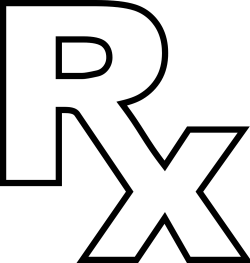How Is Drug Induced Psychosis Treated During Stimulant Detox?

Studies show that more than 10 million people in the U.S. age 12 and older misuse stimulants. When individuals use high-dose stimulants, especially during binge episodes, they can experience a range of physical and psychological symptoms. This includes drug-induced psychosis, which is characterized by symptoms like:
- Delusions
- Pranoid thinking
- Compulsive behaviors
This condition can even continue into stimulant detox, especially in the beginning stage. Thus, healthcare professionals working in detox centers must be prepared to treat drug-induced psychosis along with the other possible symptoms associated with stimulant withdrawal.
Call now to find stimulant withdrawal treatment programs near you!
First and Foremost: Safety
It is always very important that anyone experiencing psychotic tendencies be kept from hurting themselves or anyone else at all costs. In some cases, the individual may need to be restrained, but this is usually a last resort. In general, they must be kept from harming themselves or others before anything else.
Pharmacological Therapies

Patients in stimulant detox are often given medication to help minimize their extreme withdrawal symptoms.
While there is currently no medication approved to treat stimulant addiction or withdrawal, some clients may be prescribed antidepressants if they become very depressed during detox. Others may be given anti-craving agents to help minimize their cravings for the drug.
If an individual is experiencing severe psychosis, neuroleptics can sometimes control dangerous symptoms, especially those of delirium, severe agitation, aggression, and hyperactivity.
These drugs are also called antipsychotics, and they work by decreasing abnormal levels of excitement in the brain.
These medications can be very effective, especially in treating amphetamine psychosis. However, they are not always necessary and have not been entirely approved for the purpose of treating this condition.
In some instances, it is also appropriate to use benzodiazepines to sedate the individual so they will not lash out at others. These medications can help prevent the use of restraints.
Talk Therapies
Normally, after several days, the symptoms of stimulant-induced psychosis will begin to subside. This is especially true if a person is in treatment at a detox center and is safely being cared for in a controlled environment. However, some individuals still experience lingering effects of this syndrome.
It can be very helpful for a patient to be able to sit down for one-on-one therapy sessions with a counselor during their detox treatment if they are capable of doing so.
This can help minimize some of the damage their stimulant abuse has done to their mind, their thoughts, and their impulses. It can also help them better understand why they must stop taking these drugs.
Therapies like cognitive-behavioral therapy and psychotherapy can be very beneficial to an individual who needs longer-term treatment for their stimulant psychosis.
Do You Want to Attend Detox Treatment for Stimulant Abuse?
If you believe you may be experiencing psychotic symptoms, you may have a stimulant addiction. For your safety and the safety of others, you must receive help as soon as possible from a professional detox program.
You don’t need to recover alone. Call 800-996-6135 today, and get the help you need, or browse the Detox.com directory to find a center near you.

